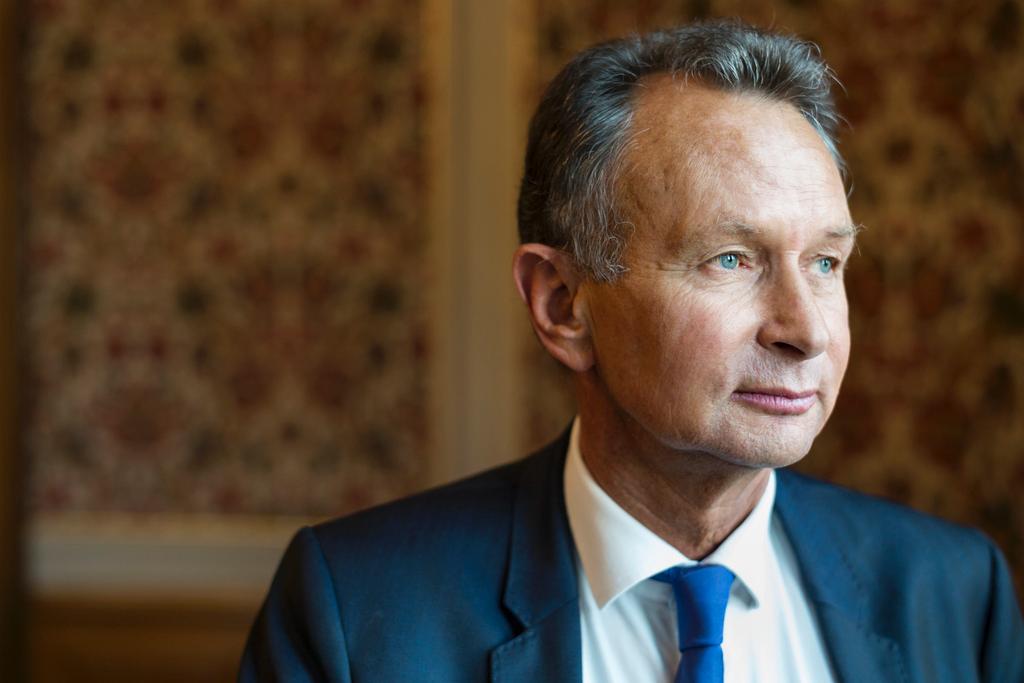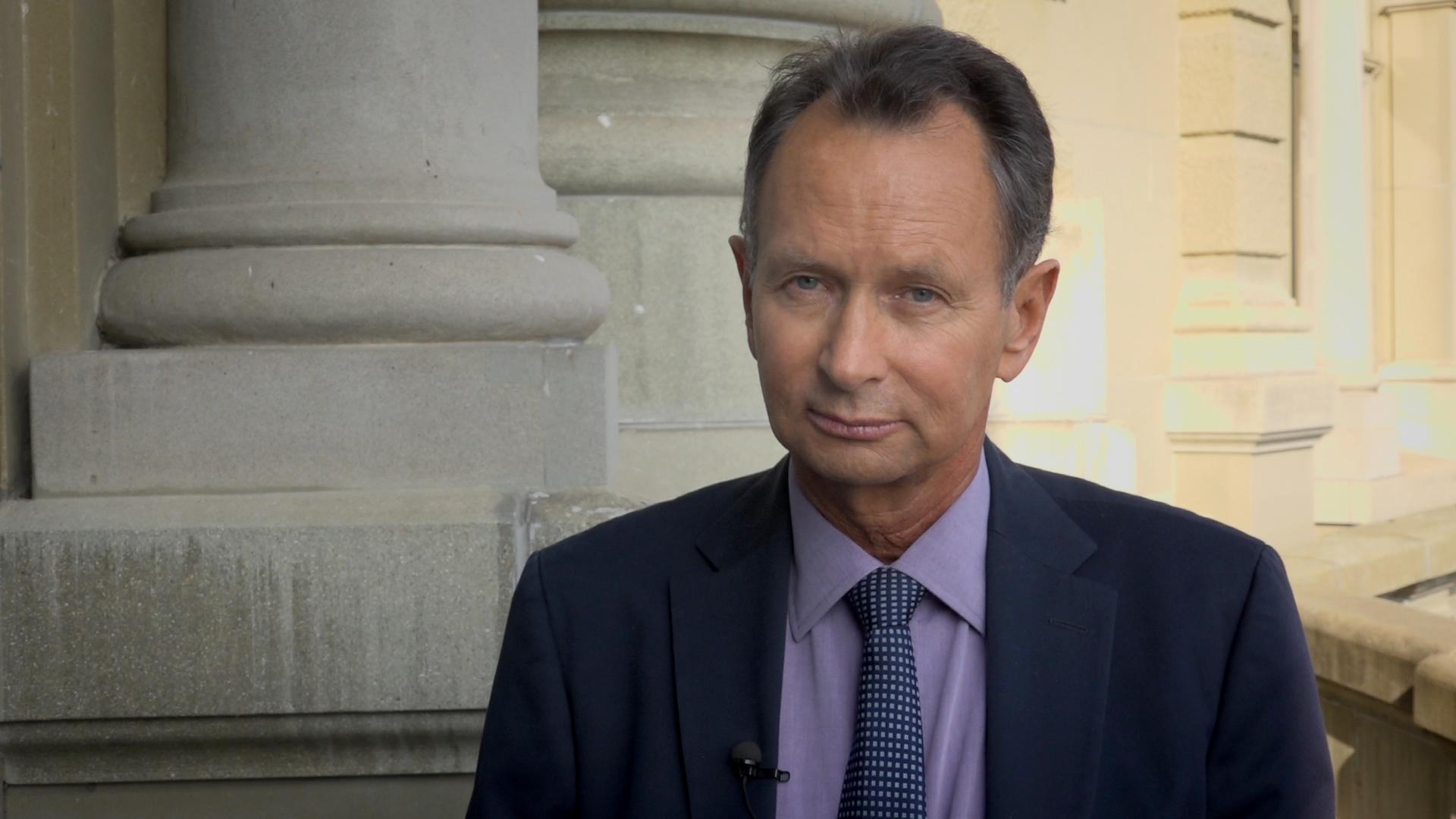
‘Significant difference between us and the Swiss People’s Party’

The founding party of modern-day Switzerland, the Radical Party, supports a liberal economic order and is calling for a lean state.
Once boasting support of the largest segment of the electorate, the centre-right party only received 15.1% of the votes in 2011. However, its president, Philipp Müller, is expecting a turnaround for the elections this autumn.
The Radicals, traditionally close to the business community, are the third largest group in parliament and hold two seats in the seven-member government.
swissinfo.ch: You have been losing votes over the past 20 years, but want to gain votes this autumn. How do you want to achieve that?
Philipp Müller: It is only natural that a party wants to gain votes. There have been promising signs that we will see a turnaround. We fare very well in the polls and we have achieved good results in the cantonal elections over the past few months. Now we just have to conduct a good election campaign and mobilise the people.
We don’t have to reinvent the wheel but we need to cater to people’s concerns and needs. Our three keywords are: freedom, community spirit and progress. This is what we stand for.
Our definition of community spirit is not the redistribution of wealth in the sense of what the centre-left wants.
Party profile
The Radicals are the founding fathers of modern-day Switzerland in 1848. However, the party was formally set up nearly 50 years later, in 1894.
Until 1891 the seven-member cabinet was made up exclusively of members of the Radical Party. It still had a majority in government up to 1943. The party, traditionally close to the business community, also dominated parliament for many years. But since 1983 the Radicals have been losing support in elections, notably to the People’s Party in 2003. At the moment the Radicals are the third largest group in parliament.
One of our priorities, for example, is the sustainable financing of the social welfare system and to make sure it will still be viable in ten to 20 years’ time.
swissinfo.ch.: Critics – even from within your own ranks – claim the Radicals had mutated to the junior party of the Swiss People’s Party. Where would you like to position your party within this area of conflict?
Ph.M.: I don’t really see an area of conflict. Our delegates’ assembly is usually very well attended. It serves as our base because it gives people the chance to be active and participate. This is where we make decisions, which apply to the party leadership and the group in parliament.
If there is an area of conflict, then any criticism is appropriate. We will take it on board and if justified, we will give it some thought. It must not be anonymous though.
swissinfo.ch: However, in which direction would you like to raise your political profile in order to avoid being associated with the People’s Party?
Ph.M.: It’s not about constantly defining ourselves into one certain direction. We make our own policies and there are significant differences between the People’s Party and us. We very much differ in our approach towards our relationship with the EU and the bilateral treaties, which we are very keen to keep, as well as migration policy.
When it comes to issues related to law and order, finances or taxation we are often in agreement with the People’s Party. We don’t necessarily have the need to continuously distance ourselves from them.
We try to win the support of other parties wherever possible to achieve a majority in parliamentary votes.
To do so, we often cooperate with the Social Democrats and the Greens on issues including agriculture or subsidies.

More
The Radical Party and the Swiss Abroad
swissinfo.ch: What are the two most important priorities for the coming legislation period?
Ph.M.: Our relationship with the EU will definitely play an important role. This mainly concerns the realisation of the initiative against mass immigration, the progress on the bilateral treaties as well as our big project, the retirement provision 2020.
swissinfo.ch: The strict implementation of the initiative against mass immigration would diametrically oppose the bilateral treaties with the EU. How much do you want to dilute the initiative in order to save the bilateral treaties?
Ph.M.: It’s still early days to define that. The negotiations with the EU are underway. But I am certainly under no illusions that the three keywords (annual maximum figures, contingents and Swiss priority), which have been engrained in our constitution since February 2014, can actually be compatible with the free movement of people agreement.
The negotiations with the EU are now all about sounding out what is possible. At the end of the day it is the constitution that counts and we will have to find a solution. However, at the moment I still cannot see what such a solution would be.
swissinfo.ch: Is there a need for a second nationwide vote in this case?
Ph.M.: Parliament must pass a law to implement the immigration curbs by February 8, 2017 at the latest. There will be a public ballot in any case by November 27, 2016. This is the last possible date for a referendum before the end of the three-year-period for the implementation of the constitution.
We don’t know yet what the law will look like, however, it will certainly be a crucial vote given the fact that it will shed light on how this law will affect the bilateral treaties.
swissinfo.ch: Islam has been the subject of many discussions recently. Which role should this religion play in our society?
Ph.M.: We are a secular state and we want to keep it that way. Those who observe our constitution, laws and customs have freedom of religious expression and will not encounter any problems in Switzerland. We just do not tolerate any form of fundamentalism or fundamentalist excesses; and no matter what the source, we would definitely fight it.
(The interview was conducted in March 2015)
Translated from German by Billi Bierling

In compliance with the JTI standards
More: SWI swissinfo.ch certified by the Journalism Trust Initiative

























You can find an overview of ongoing debates with our journalists here . Please join us!
If you want to start a conversation about a topic raised in this article or want to report factual errors, email us at english@swissinfo.ch.